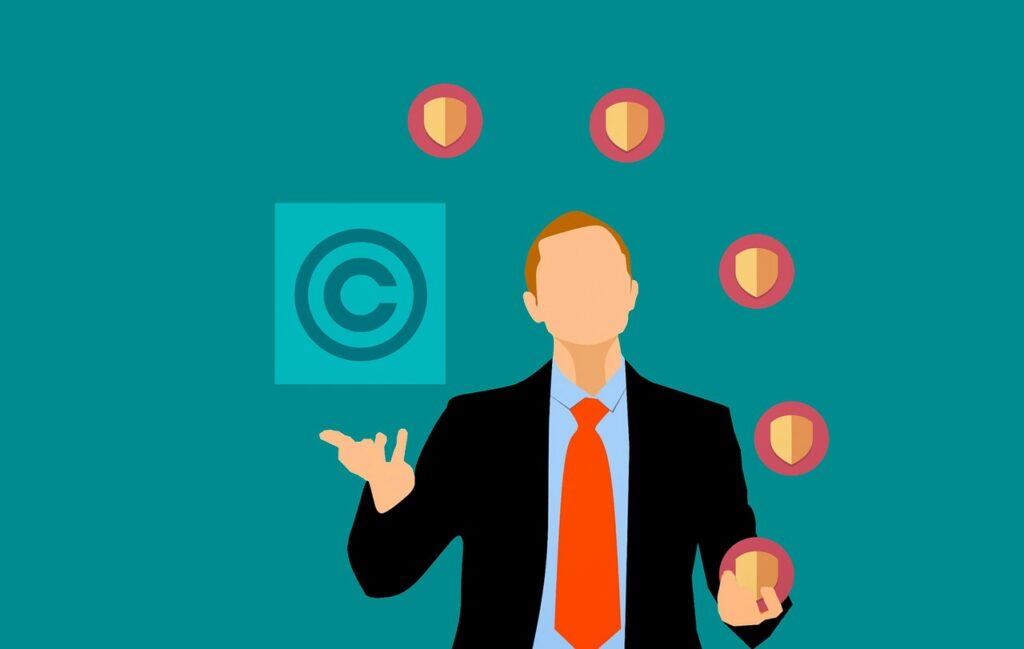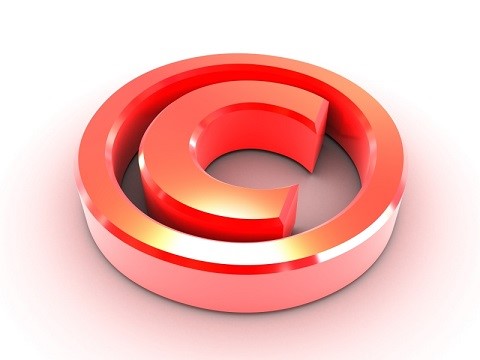
Protect Your Work with Copyright
Understanding Copyright Protection for Creative Works
In the world of creative expression, originality deserves protection. That’s where copyright comes in. This legal safeguard grants creators exclusive control over the use and distribution of their works. It applies to a wide range of creations, including books, music, artwork, plays, and films.¹ The moment you bring an original work into existence, protection begins automatically, typically lasting for your lifetime plus 70 years.²
Unveiling the Copyright Mystery
Think of copyright as a shield defending the unique way you express an idea. These rights give you the authority to decide how your work is reproduced, shared, displayed, performed, or even transformed into derivative works.³ While protection arises at the moment of creation, no formal registration is required.⁴ However, registering with the U.S. Copyright Office offers additional advantages:
-
Public Record of Ownership: Your claim is entered into the official database, serving as undeniable proof of authorship.
-
Access to Federal Court: Registration allows you to take legal action for infringement, and timely registration strengthens your claim in court.
-
Enhanced Remedies: Successful infringement claims with a registered work may entitle you to statutory damages and attorney’s fees.⁵
How to Secure Copyright Protection
There are two main ways to secure and reinforce your ownership:
-
Publish with a Copyright Notice: Include the © symbol, year of publication, and your name as the rights holder.
-
Register with the U.S. Copyright Office: This involves completing an application, paying the filing fee, and submitting a copy of the work being registered.⁶
What Copyright Does Not Protect
Certain things cannot be protected, such as facts, ideas, systems, methods of operation, titles, slogans, or short phrases.⁷ Additionally, materials like blank forms, government documents, or works already in the public domain are excluded.⁸
Duration of Protection
Generally, works created after January 1, 1978, are protected for the author’s lifetime plus 70 years.⁹ For anonymous, pseudonymous, or works made for hire, the term lasts 120 years from creation or 95 years from publication, whichever comes first.¹⁰
Benefits for Creators
Owning these rights allows you to control how your work is used. You can sell, license, or transfer your ownership.¹¹ Additionally, you have legal grounds to act against unauthorized use.¹²
Protecting Your Investment
If you suspect infringement, you can send a cease-and-desist letter. If the issue persists, filing a lawsuit is an option.
Tips to Strengthen Copyright Protection:
-
Keep documentation of your creative process—drafts, sketches, or correspondence.
-
Always display the © notice on published works.
-
Consider registration with the U.S. Copyright Office for added security.
-
Seek legal guidance from an attorney specializing in intellectual property.
Disclaimer
This article is for informational purposes only and does not constitute legal advice. Please consult with an attorney for specific legal guidance.
1Copyright.gov: Copyright in General,https://www.copyright.gov/help/faq/faq-general.html#:~:text=Copyright%2C%20a%20form%20of%20intellectual,%2C%20computer%20software%2C%20and%20architecture (last visited February 6, 2024).
2 Copyright.gov: How Long Does Copyright Protection Last?,https://www.copyright.gov/help/faq/faq-duration.html#:~:text=As%20a%20general%20rule%2C%20for,plus%20an%20additional%2070%20years (last visited February 6, 2024).
3Congressional Research Service: Copyright Law: An Introduction and Issues for Congress, https://crsreports.congress.gov/product/pdf/IF/IF12339#:~:text=Exclusive%20Rights%20of%20Copyright%20Owners,%2C%20sequel%2C%20or%20dramatization (last visited February 6, 2024).
4Copyright in General,https://www.copyright.gov/help/faq/faq-general.html#:~:text=Copyright%2C%20a%20form%20of%20intellectual,%2C%20computer%20software%2C%20and%20architecture (last visited February 6, 2024).
5 Id.
6Id.
7Id.
8Id.
9: How Long Does Copyright Protection Last?, https://www.copyright.gov/help/faq/faq-duration.html#:~:text=As%20a%20general%20rule%2C%20for,plus%20an%20additional%2070%20years (last visited February 6, 2024).
10Id.
11Copyright Law: An Introduction and Issues for Congress, https://crsreports.congress.gov/product/pdf/IF/IF12339#:~:text=Exclusive%20Rights%20of%20Copyright%20Owners,%2C%20sequel%2C%20or%20dramatization (last visited February 6, 2024).
12 Id.

